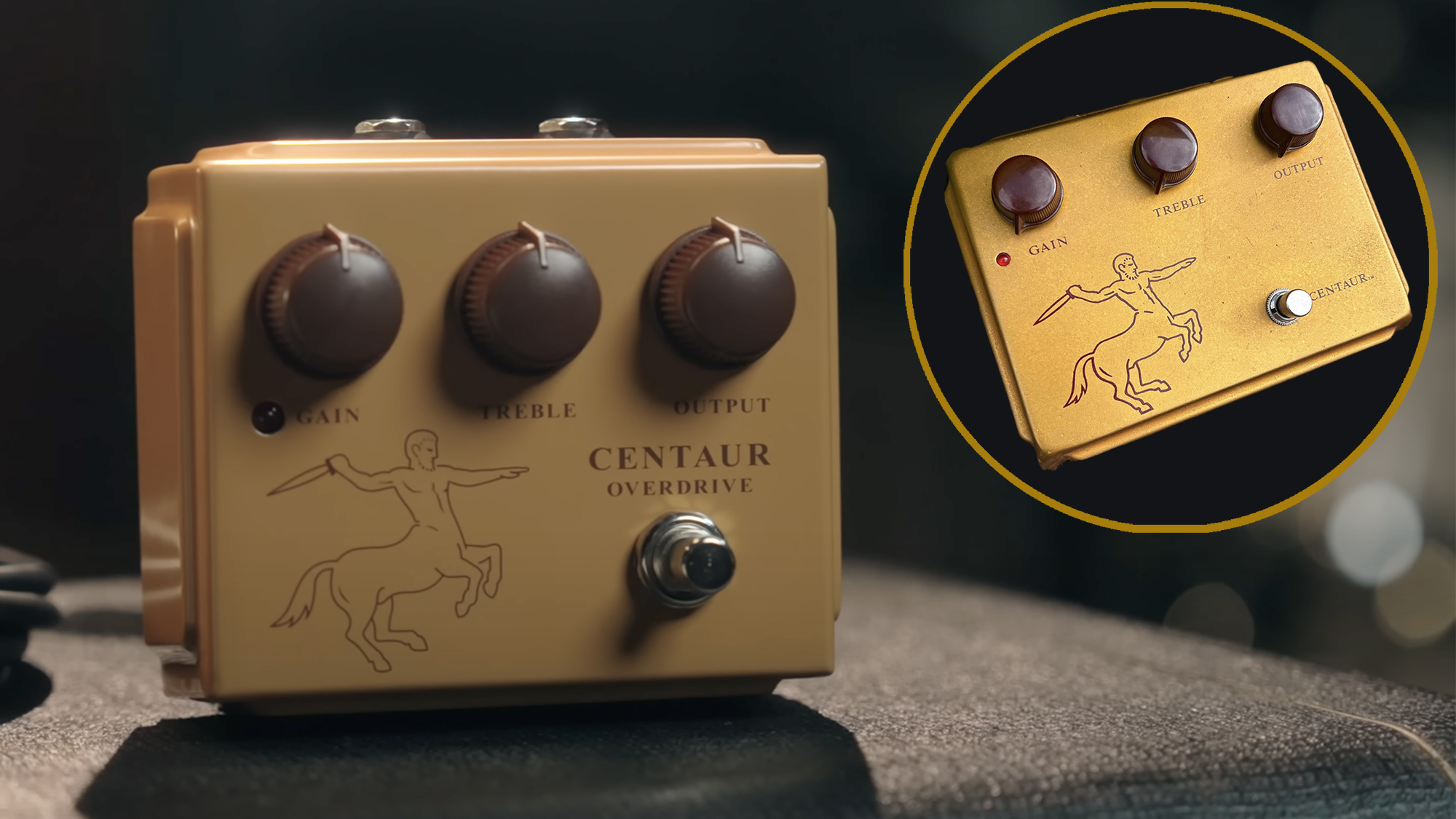“And it has all been done for a quick and easy buck." Klon sues Behringer's parent company for "blatant counterfeit" of its iconic overdrive pedal
The lawsuit accuses Music Tribe of “willful trademark counterfeiting" and seeks damages and injunctive relief

Klon is suing Behringer’s parent company over what it calls “blatant counterfeit” of its Centaur overdrive pedal.
The suit, brought by Klon LLC against Music Tribe, accuses the company of “willful trademark counterfeiting, trademark and trade dress infringement, false designation of origin, passing off, and unfair competition.” The suit seeks damages and injunctive relief — essentially a court-ordered cease-and-desist.
While numerous pedal makers have copied the storied Centaur overdrive over theh years, Klon says Behringer’s clone crossed a legal and ethical line with its virtual replica of the original unit. The Behringer pedal has the same metal casing with gold finish and centaur logo with prominent use of the word “Centaur” in an identical font and color. Furthermore, Behringer refrains from using its own branding on the faceplate.
The lawsuit further alleges the company is deliberately misleading buyers by using the name and likeness of Klon founder Bill Finnegan in its promotional materials without consent. The suit notes that Finnegan has devoted more than 30 years of his life “to developing, promoting, servicing, and defending his rights in his unquestionably famous Centaur overdrive pedal.
“Defendants, by contrast, have taken the shortest of shortcuts by copying the branding and appearance” of the iconic pedal.
“And it has all been done for a quick and easy buck, the very opposite of what Plaintiffs and their famous Centaur pedal are all about.”
In particular, Klon points to a Behringer video for its pedal in which, the complaint says, the company “extensively discusses” the original Centaur pedal while showing Behringer’s copy, misleading buyers into assuming a connection between the two pedals.
All the latest guitar news, interviews, lessons, reviews, deals and more, direct to your inbox!
According to the lawsuit, “immediately after the launch of Defendants’ YouTube video, consumers expressed extensive actual confusion (that went deliberately unabated by Defendants), with many rushing to purchase Defendants’ counterfeit pedal believing Defendants are delivering on a mass scale a discounted product licensed or endorsed by Plaintiffs.”
Finnegan issued his own statement through Klon LLC’s Instagram confirming the lawsuit. In it, he states, “I have never been consulted in any way about this pedal, it has never been authorised by me, and I have never had any involvement whatsoever in its design, production, or marketing.”
Neither Behringer nor Music Tribe have responded to the suit publicly as of this time.
A post shared by Bill Finnegan (@klonllc)
A photo posted by on
First issued in 1984 after several years in development, the Klon Centaur was the result of Finnegan’s quest to add a little grit between his Telecaster and Fender Twin Reverb when he decided the Ibanez Tube Screamer’s midrange hump and spongy response didn't suit his style. The result of his efforts was a clear, transparent drive that adds thickening and characterful boost without affecting the guitar's original tone.
Through the pedal’s 15-year production run, Finnegan personally hand-built some 8,000 units before production ceased in 2009. Original units today can sell for up to $5,000.
The Klon has become a favorite of many guitarists, including Joe Bonamassa, who gave away his own unit for free and soon regretted it. Last year he teamed up with Way Huge to create what he calls "the ultimate clone" of the Centaur.
Others include Peter Frampton, blues guitarist Eric Johanson, who lost his original Klon in Hurricane Katrina., and Joe Perry, who says he unintentionally gave his early unit away to his pal Jeff Beck.
Christopher Scapelliti is editor-in-chief of GuitarPlayer.com and the former editor of Guitar Player, the world’s longest-running guitar magazine, founded in 1967. In his extensive career, he has authored in-depth interviews with such guitarists as Pete Townshend, Slash, Billy Corgan, Jack White, Elvis Costello and Todd Rundgren, and audio professionals including Beatles engineers Geoff Emerick and Ken Scott. He is the co-author of Guitar Aficionado: The Collections: The Most Famous, Rare, and Valuable Guitars in the World, a founding editor of Guitar Aficionado magazine, and a former editor with Guitar World, Guitar for the Practicing Musician and Maximum Guitar. Apart from guitars, he maintains a collection of more than 30 vintage analog synthesizers.

